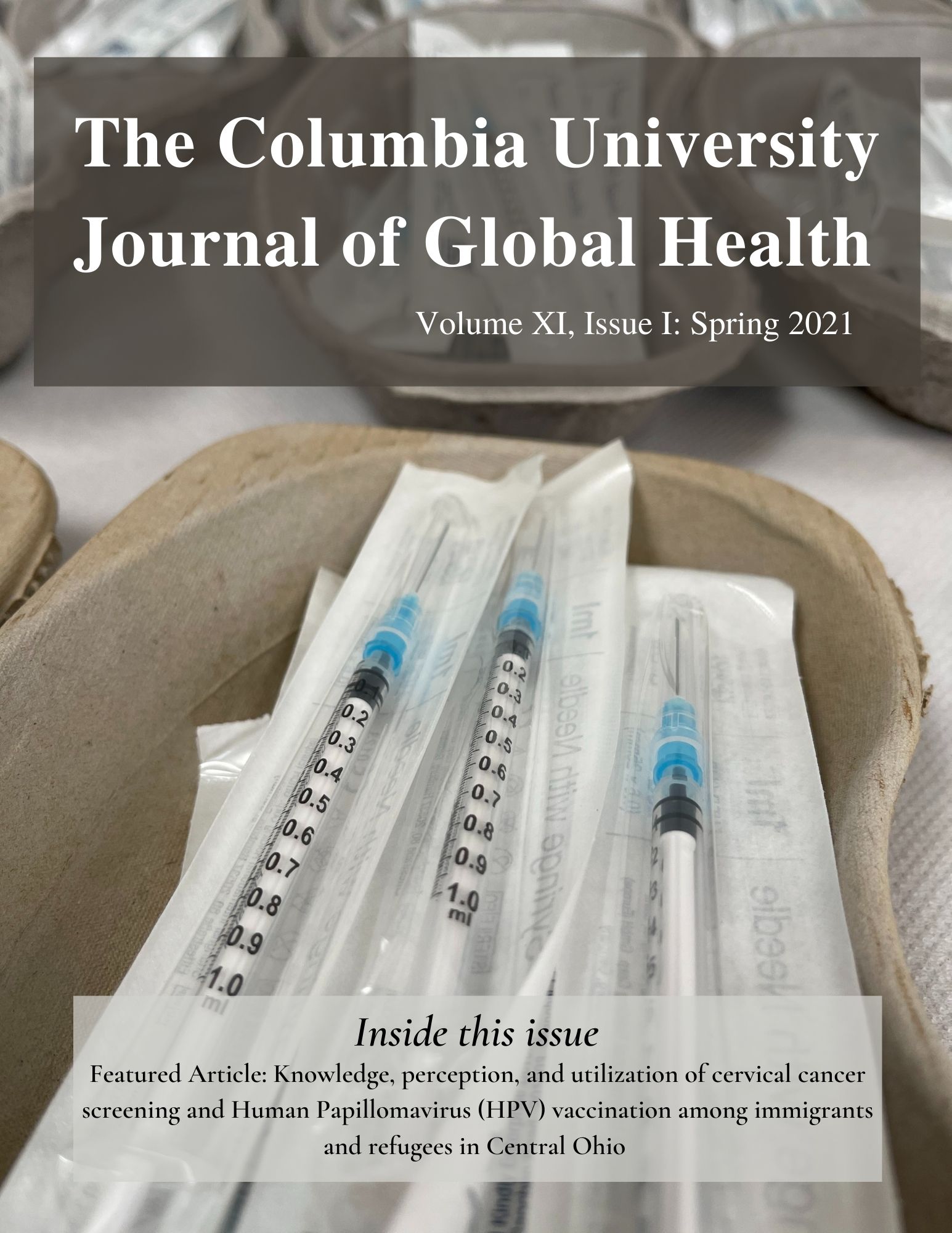Knowledge, perception and utilization of cervical cancer screening and Human Papillomavirus (HPV) vaccination among immigrants and refugees in Central Ohio
Main Article Content
Abstract
Background: Immigrants in the US are at higher risk of Human Papilloma Virus (HPV) infection and cervical cancer compared to the general US population. Low awareness surrounding cervical cancer inhibits associated preventive practices.
Purpose: This cross-sectional study examined the association between knowledge, attitude, and utilization of health services for cervical cancer screening and HPV vaccine among immigrant and refugee women in Ohio.
Method: Preliminary analyses were conducted on a total of 70 participants recruited from immigrant and refugee organizations and community centers, using a validated paper survey.
Results: There was a statistically significant association between cervical cancer screening and general knowledge on cervical cancer (p = 0.038). The study also revealed association between screening age (p < 0.001) and insurance status (p = 0.033). Majority of the participants perceived HPV vaccine to be ineffective at preventing cervical cancer, and 40.8% participants had never heard of the vaccine and consequently had not been vaccinated. 94% participants did not receive the HPV vaccine, however, 65.3% participants indicated willingness to be vaccinated against HPV for free or at reduced cost.
Conclusion: Culturally appropriate interventions are warranted to develop effective strategies that will influence HPV screening behavior and vaccine uptake in this target population.
Article Details

This work is licensed under a Creative Commons Attribution 4.0 International License.

